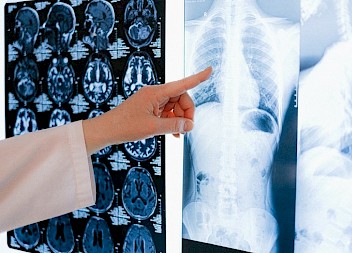There is a lot of support for loss of eyesight, in the UK, through agencies and charities. Here you will find a selection of some of the more well-known. However, if you cannot find what you are looking for, please feel free to ask our friendly team for some help in getting you to the right place for support.
This page is divided into 4 sections:
- First practical steps.
- Support Groups for Loss of Eyesight
- Where to find local support for Loss of Eyesight.
- Other places to go for financial advice and support
FIRST PRACTICAL STEPS
It is not in your interests to hide away with eyesight problems. In the UK, only about one-sixth of people with sight loss are registered as blind or partially sighted. You do not have to register, but if you qualify to register, it gives access to even more support. You could benefit from help to come to terms with a diagnosis of impairment in your eyesight. You may be upset, even angry. It is important to reach out and ensure you are looking after the basics:
- If you have not been referred to a specialist low-vision clinic,often located within a hospital, then ask your local hospital (or your GP) if they have an Eye Clinic Liaison Officer (ECLO), whose role involves providing support to people with vision loss in eye clinics. They can provide a lot of practical advice to help you in your day to day life.
- An ophthalmologist can help you to decide whether your loss of eyesight is such that you qualify to register as partially sighted. If so, your ophthalmologist will prepare a certificate and copy it to you, as well as your GP and your local social services department. Your local social services team will then contact you to ask whether you want to be added to its register of visually impaired people. After you’re registered, social services will contact you again to arrange for an assessment to be carried out. The aim is to assess your needs and find out what help you require to remain independent, such as help with cleaning and cooking, or help with mobility and transport. Registering as visually impaired isn’t compulsory, but it can entitle you to a range of benefits including (DLA or PIP, reduced TV licence fees, tax allowance, reduced public transport fees, parking concessions, etc.)
- Changes to your home. There are many pieces of equipment available to help you at home. For example:
- Big-button telephones and computers with big-button keyboards, screen display software and text readers (more information available via the RNIB-see below under support groups)
- Community alarm that you wear and if pressed sends an alarm signal to a response centre, which will alert a nominated friend or carer (via your local authority).
- Fluorescent bulb bright lighting and adjustable lights are essential to reduce the risk of accidents.
- Decorating with contrasting paint colours can assist how you see things around the home and make your home safer for you. Reading and writing.
- Help with reading.
- A magnifying device that can make print appear bigger to help you read. These can be obtained from a number of places including hospital low vision services, optometrists, local voluntary organisations, and the RNIB.
- The RNIB also has a collection of large print publications you can borrow, as do most libraries.
- You could also use an e-reader to help you read. E-readers are handheld devices that allow you to download books and subscribe to newspapers and magazines on the internet. You can choose a setting that allows you to display text at a larger size.
If you’re unable to read at all you could sign up to the:
- National Talking Newspapers and Magazines scheme, which can provide audio versions of more than 230 titles online or on a CD
- RNIB Talking Books Service, where you’re sent audio books to listen to on your computer or a device known as a DAISY player
- You can also install screen-reading software on your computer that will read out emails, documents and text on the internet.
- There are also voice recognition programmes where you speak into a microphone, and the software translates what you say into writing. These programmes can also be used to issue commands, such as closing down the internet and moving from one website to another.
- Some people with severe sight loss, particularly those who’ve had the problem from a young age, choose to learn Braille, a writing system where raised dots are used as a substitute for written letters. There are Braille versions of books and magazines, Braille display units, which can be attached to computers that allow you to read the text displayed on a computer screen. Braille computer keyboards are also available. The RNIB website has more information about reading and Braille.
- Getting around on foot.
- Long cane. There is a long cane, usually foldable, to help you detect objects in your path. The cane will also make drivers and other pedestrians aware that you have sight loss. The RNIB offer training course in using a long cane.
- Guide Dogs. The charity Guide Dogs has been providing guide dogs for people with vision loss for many years. Guide dogs can help you get around, and provide both a sense of independence and companionship. Guide Dogs provide all the essential equipment free of charge and can also offer financial assistance if needed for things like food or vet costs. You don’t need to have lost all your sight to benefit from a guide dog, and you don’t have to be officially registered as blind or partially-sighted to apply for one. The Guide Dogs website has more information about applying for a guide dog. Guide Dogs also offer some other services for people with a visual impairment (even if you don’t have a guide dog), such as Children and Young People’s Services and mobility training. The charity also provides the My Guide service, which aims to reduce the isolation that many people with sight loss experience, helping to rebuild their confidence and regain their independence.
- If you are visually impaired, you are legally obliged to inform the Driver and Vehicle Licensing Agency (DVLA). Failure to do so is a crime and can result in a fine of up to £1,000. Visit GOV.UK for more information about driving with a disability or a health condition. You can still drive if your vision impairment is mild. However, you do have to prove to the DVLA that this is the case and it is still safe for you to drive. It will be all right if you can read a number plate from a distance of 20 m (65 feet), and an eye test shows you have visual acuity of at least 6/12. You can wear your glasses, or contact lenses when taking the eye test. You can ask your doctor to support you in this and to help you fill in the DVLA medical information questionnaire (PDF, 265kb).
- Global positioning system (GPS) A global positioning system (GPS) is a navigational aid that uses signals from satellites to tell you where you are and help plan your journeys. These devices can be programmed using a Braille keyboard, which tells you your current location and gives you directions to where you want to go. You can download GPS on a smartphone. The RNIB (see below) can assist with other aids for driving.
- Employment
- If you’re currently employed and have recently been diagnosed with a visual impairment, you should contact the Access to Work scheme run by Jobcentre Plus that provides advice and support about what equipment and adjustments may be required to enable you to do your job. They also offer a grant to contribute towards the costs of any equipment or training you may need, such as voice recognition software, a Braille keyboard and display unit and a printer that can convert text into Braille (Braille embossers). Depending on the size of the company you work for, the grant can pay for 80-100% of costs, up to £10,000.
- If you’re currently looking for work, there are three main organisations that can provide extra advice and support: The RNIB, which has a useful section on its website about looking for work, Jobcentre Plus and Action for Blind People
- You don’t have to disclose that you have a visual impairment when applying for a job, but it’s usually recommended that you do. If you feel you’ve been turned down for a job because of your disability, and you were capable of doing the job, you can make a complaint under the Equality Act 2010.
- Some people with a visual impairment decide to become self-employed, often because it allows them the flexibility to work at home for hours they choose. Action for Blind People has self-employment advisers who can provide information and training on issues such as drawing up a business plan, obtaining funding and book-keeping.
- The RNIB website has more information and advice about work and employment. You can also read more about employment on the Action for Blind People website. Regular sight tests
- Regular eye tests
- If you have vision loss, it’s still important to have regular sight tests so your optometrist (eye specialist) can check for further changes in your eyes and give you advice about how to make the best use of your vision.
Find an optician near you and read more about NHS eye care services.
GROUPS PROVIDING SUPPORT FOR LOSS OF EYESIGHT
If you’re blind or partially sighted, you may find it helpful to contact a support group for people with vision loss.
- Royal National Institute of Blind People (RNIB)
The Royal National Institute of Blind People (RNIB) is the UK’s leading charity for people with vision loss, and it has a useful page on its website about coming to terms with sight loss.
The RNIB’s helpline is open Monday to Friday from 8.45am to 5.30pm. The number is 0303 123 9999, with calls costing no more than a standard rate call to an 01 or 02 number. You can also email helpline staff (helpline@rnib.org.uk).
The RNIB’s website is specially designed for people with sight loss and provides a wide range of useful information and resources, including an online community and online shop.
- Action for Blind People
Action for Blind People is another national charity that provides blind and partially sighted people with practical help and support.
For example, the charity can provide you with support and information about the day-to-day practicalities of living with a visual impairment, such as adjusting your home to make it easier to get around.
Other national charities that specialise in vision loss and you may find useful include:
- The Macular Society – helpline: 0300 3030 111
- International Glaucoma Association – helpline: 01233 64 8170
- Retina UK – helpline: 0300 111 4000
- Diabetes UK – 0345 123 2399 or email: info@diabetes.org.uk
- Blind Veterans UK – 020 7723 5021
LOCAL SUPPORT GROUPS
There are also many local voluntary organisations around the country that help and support people with vision problems. You can search by postcode on a website called Visionary to find local support organisations near you.
FOR FINANCIAL ADVICE AND SUPPORT:
- The Money Advice Service
For advice on benefits entitlement and financial matters, we recommend you seek further information via your local authority website for local support services or at The Money Advice Service:
www.moneyadviceservice.org.uk/en/articles/where-to-get-help-and-advice-about-benefits
- Age UK benefits advice for older people
Age UK is for those over State Pension age and living in the area covered by the local branch. Some local branches of Age UK offer a free, confidential benefits advice service. Practical assistance to make sure you’re getting all the benefits to which you are entitled. They can provide advice by telephone, face-to-face, and home visits and help with completing forms.
Telephone the Age UK Helpline: 0800 169 6565 (8am-7pm, 365 days a year)
Website: Age UK website
- Gingerbread Single Parent Helpline
Gingerbread provides advice and practical support for single parents, including advice on benefits and tax credits.
You can call free on 0808 802 0925 (Monday: 10am to 6pm, Tuesday, Thursday, Friday: 10am to 4pm, Wednesday: 10am-1pm and 5pm-7pm)
- Debt advice
If you’re worried about keeping up with debt repayments, there is lots of free, confidential help and advice available. Find out more by following the link below:
Where to go to get free debt advice
- Housing advice
If you have rent or mortgage arrears or you’re worried about losing your home, Shelter offers confidential advice on a range of housing issues.
- Visit the Shelter England website
- Visit the Shelter Scotland website
- Visit the Shelter Cymru website
- Visit the Shelter Northern Ireland website
Click here to go back to our page on Negligence Claims for Loss of Eyesight











